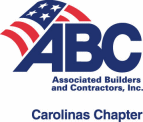I frequently receive phone calls from general contractors curious to know what their legal rights and obligations are with respect to subcontractors before a subcontract agreement is actually reached. Invariably, these calls entail answering one of two questions:(1) Can I sue a subcontractor who wants to back out of its sub-bid or estimate? Or,
(2) Am I obligated to use a subcontractor upon whose sub-bid or estimate I based my prime contract price?
Generally speaking, the answer to both questions is “No.” That’s partially good news for subs, and partially good news for GC’s. Here’s why.
The leading North Carolina case on these questions is Home Electric Co. of Lenoir, Inc. v. Hall and Underdown Heating & Air Conditioning Co., 86 N.C. App. 540, 358 S.E.2d 539 (1987). In Home Electric, a general contractor argued that it relied upon a certain HVAC estimate in putting together its own bid, and as a result, the subcontractor providing the sub-bid should be bound to the GC, even in the absence of a formal subcontract agreement. Had that argument prevailed in court, the GC would have recovered the $30,000 premium it had paid to a different HVAC subcontractor after the subcontractor who had provided the sub-bid informed the GC that it was no longer willing to perform the trade work in question.
As it turned out, the GC’s argument wasn’t a winner. The N.C. Court of Appeals ruled that the GC’s alleged detrimental reliance on the sub-bid — “promissory estoppel” to us legal-folk — was not sufficient to bind the subcontractor to the GC. To rule otherwise, the court opined, would create a potential injustice, since the GC would still be free to shop the sub’s bid at the same time the sub would be bound to the GC. Troubled by the lack of mutuality created by the “promissory estoppel” doctrine — which is observed in many other jurisdictions, by the way — the Court of Appeals refused to let the doctrine substitute for the usual consideration a GC furnishes to bind a sub to its performance promise — i.e., a return promise to pay timely for that performance.
The Home Electric decision is therefore good news for subcontractors, who generally can not be compelled to perform, or be sued for non-performance, in the absence of a formal subcontract agreement. In other words, sub-bids aren’t strong enough to create a binding contractual obligation.
So where’s the good news for GC’s? Well, until there’s a deal in place, they aren’t bound, either. As a result, if a GC begins to suspect that a certain subcontractor could become a project troublemaker, the GC can cut bait and fish elsewhere, so long as a subcontract agreement has not been reached. This flexibility also means that North Carolina general contractors are free — at least legally — to shop a subcontractor’s sub-bid after bid day. Of course, whether or not bid shopping is a smart and/or ethical business practice, particularly when frequently employed, is an open question, one beyond the scope of this post (and certainly worthy of a post of its own). For present purposes, suffice to say that thanks to Home Electric, there are no legal obstacles to bid shopping in North Carolina.
I’ll apply my usual disclaimer to this analysis: this post is for informational purposes only, and merely recites the general rules of the road. Lots of legal rules have exceptions, however, and every case is unique. Never rely solely on a blog post in evaluating your situation — always contact a construction attorney when your legal rights and obligations are on the line.






